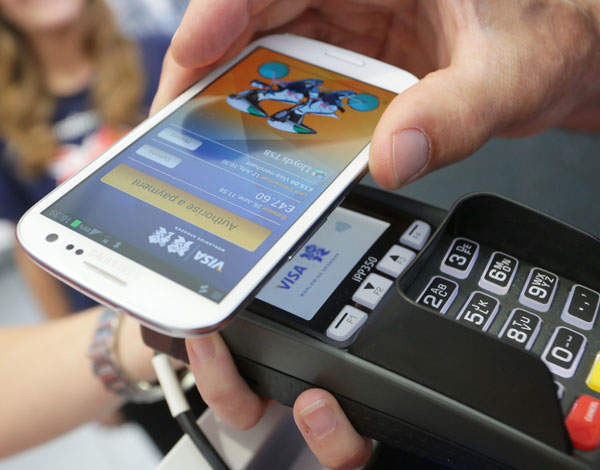

When you think about money, whether it’s a pound, a dollar or a renminbi, the image of rectangular paper notes adorned with imperious figureheads or ornately carved metallic disks probably springs to mind. But in fact for many people physical cash is not the preferred method of payment.
A recent report by the British Retail Consortium said that customers are using less cash than ever, with the number of cash transactions dwindling and the average amount spent each time falling to less than £10.
However, while Britons may be largely cashless it doesn’t necessarily mean they are out of pocket – they simply have a large choice of more convenient payments. For instance, a major contributor to declining cash is the increased versatility of debit cards, meaning they are increasingly used even for small transactions. Indeed the average value of debit card payments has fallen from £31.45 in 2009 to £27.58, according to the Consortium.
Another reason for cashlessness is down to the popularity of online payments, which allow people to shop around either from the comfort of their own homes or via a mobile phone.
‘The way that people pay is changing,’ says Rob Skinner, director of PR at online payment giant PayPal. ‘Cash and cheques are on the decline as electronic money plays a bigger and bigger part in our daily lives. People tend not to carry a lot of cash around on them these days and when they do have spare cash they tend to want to hang onto it.’
One of the most innovative forms of electronic money technologies is wallet-less mobile payments. For instance, PayPal has introduced a mobile payment wallet platform that competes with Google Wallet and Square Wallet. Virtual currencies like Bitcoin and NFC technology (near-field communication) used for contactless transactions are new forms of payment in the process of being developed, though neither are as yet widely used.
‘Our Android app has an inbuilt NFC element,’ says Rob Skinner. ‘But most consumers don’t have NFC-enabled phones and it doesn’t feature on any of the iPhones. If it’s going to take off there’s got to be a really compelling reason, ie it needs to significantly improve life for consumers. Currently it doesn’t have a clear purpose – it’s like a solution looking a problem.’
Cashless or less cash?
Cash is waning but that doesn’t necessarily mean it will disappear any time soon. ‘Cash will certainly exist for the foreseeable future because people are attached to it,’ says Skinner.
Ron Shevlin, senior analyst at AITE Group and author of the report ‘The Less-Cash Society: Forecasting Cash Usage in the United States’, agrees that cash is not in danger of extinction just yet. ‘The decline is going down in single digits,’ he says. He adds that there are a number of barriers preventing a total decline in cash, one being that older consumers often prefer to make cash payments through habit while also not being equipped with the latest high-tech gadgets. ‘Not everyone has a technical device to make a payment, so from a generational perspective there’s been a real drag on advancement.’
Interestingly, during the financial downturn even younger consumers used cash more as they saw it as a means of disciplining themselves since they could see and keep tabs on what they were spending, according to Shevlin.
Another factor keeping cash around is travel and tourism, since mobile technology is not yet reliably operable when crossing borders. ‘One of the things I hate about being in the EU is my smartphone issues, so if payment was limited to a mobile then in these cases there’d be a problem,’ says Shevlin, adding that these factors may mean cash endures for at least another twenty to thirty years.
Of course, another major reason cash still exists is down to cost. From a retailers’ perspective, card transactions incur a charge but there is no cost for cash. This cost then rebounds on the consumer as hard-hit smaller retailers then charge a fee for card payments, which essentially means cash payments are cheaper.
‘At the moment even mobile payments are tied to existing debit cards, so mobile technology needs to become more attractive and cut the interchange fee, perhaps focusing on marketing and advertising to gain revenues instead, in order to enable increased uptake of electronic payments,’ says Shevlin.
No cheque, please
One way of abolishing the use of cash, Shevlin adds, would be through governmental policy regulation changes, as in the case of Australia, which followed a systematic migration path to end the use of cheques in the country. However, there are no plans as yet on the horizon for the UK or any other major global economy to phase out cash.
Whatever the future holds for notes and pennies, the fact remains that cash currently accounts for half of all transactions made in the UK, according to the British Retail Consortium. After all, as Shevlin says, if you walk into a shop and someone says that something costs £10 with a card and £9 with cash, the majority of people are going to go with cash. So don’t clear out your cash stash just yet.






